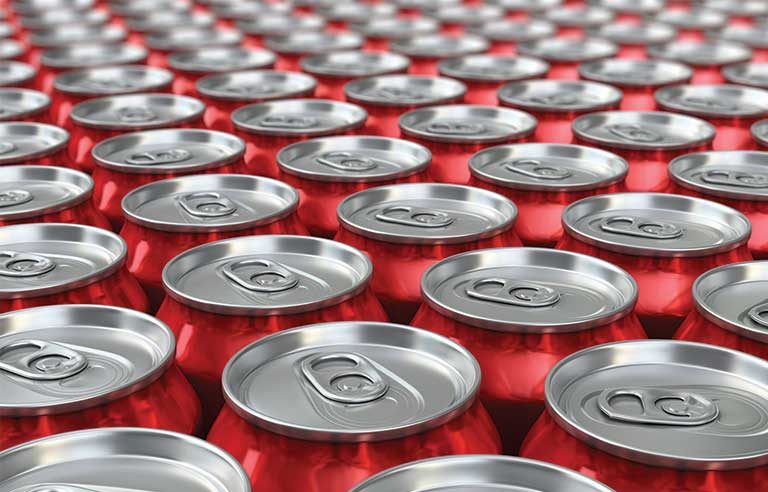Recent reports from the Centers for Disease Control and Prevention (CDC) highlight a concerning trend in the United States, with approximately 63% of American adults consuming at least one sugar-sweetened beverage every day. Popular brands like Coca-Cola and Pepsi continue to dominate the market, but health experts warn against the potential adverse effects of excessive soda consumption.
Brand valuation consultancy firm Brand Finance reveals that Coca-Cola and Pepsi held the top spots as the leading non-alcoholic beverages in 2022 and 2021. These vintage sodas evoke nostalgia and childhood memories, but they come with a high sugar content that can be hazardous to our health.
The American Heart Association recommends daily sugar limits of 36 grams for men and 25 grams for women. A standard 20-ounce bottle of Coca-Cola, for instance, contains a staggering 65 grams of sugar, exceeding the recommended daily intake.
Registered dietitian Chris Mohr suggests some “healthier” ways to consume soda while being mindful of sugar intake. One approach is opting for smaller can sizes. A 7.5-ounce mini can of Coke, for instance, contains 25 grams of sugar, making it a better choice if you must indulge in soda.
Another alternative is choosing diet soda, which replaces sugar with artificial sweeteners, significantly reducing sugar and calorie intake. However, diet sodas also have their concerns. The World Health Organization recently announced that aspartame, found in diet sodas, is a possible carcinogen. While occasional consumption is deemed safe, heavy users should limit their intake.
The glaring problem with soda lies in its lack of nutritional value. Soda provides no essential nutrients, only adding unnecessary sugar to our diets. These sugary drinks, including soft drinks, fruit juices, and energy drinks, are a major source of added sugar in the American diet.
Excessive consumption of sugary beverages has been linked to various health issues, such as weight gain, obesity, type 2 diabetes, high blood pressure, and tooth decay. In addition, it may lead to lower intake of essential nutrients like calcium.
Although the occasional soda may not have significant health consequences, making it a daily habit is cause for concern. Nutrition experts advise cutting down soda consumption gradually to avoid sugar and caffeine withdrawal symptoms. Smaller portion sizes and replacing soda with healthier drink options are practical ways to reduce intake.
In response to consumers’ desire for healthier sodas, new options have emerged in the market. Some brands market their products as “prebiotic” or “probiotic” sodas, featuring less sugar, added fiber, and fruit juice. While these sodas may be a better choice compared to traditional options, they are not considered a miraculous cure. The benefits of probiotics and prebiotics are more effectively obtained through a balanced diet.
For those looking for healthier alternatives, registered dietitian Chris Mohr suggests exploring flavored kombuchas, seltzer water, and coffee or tea. Kombucha comes in a variety of flavors, while seltzer water provides the fizziness without added sugars. Coffee and tea contain caffeine but offer more nutritional value compared to soda.
As the consumption of sugar-sweetened beverages remains a significant health concern in America, adopting healthier drink choices and reducing soda intake can lead to better overall well-being. Making conscious decisions about what we drink can contribute to a healthier lifestyle in the long run.


